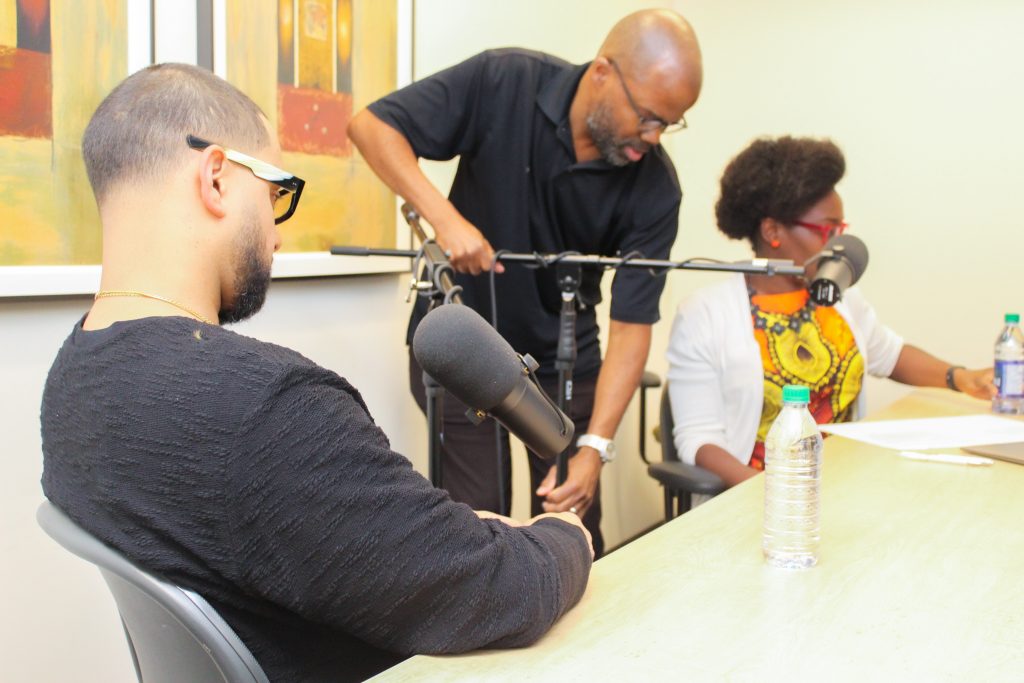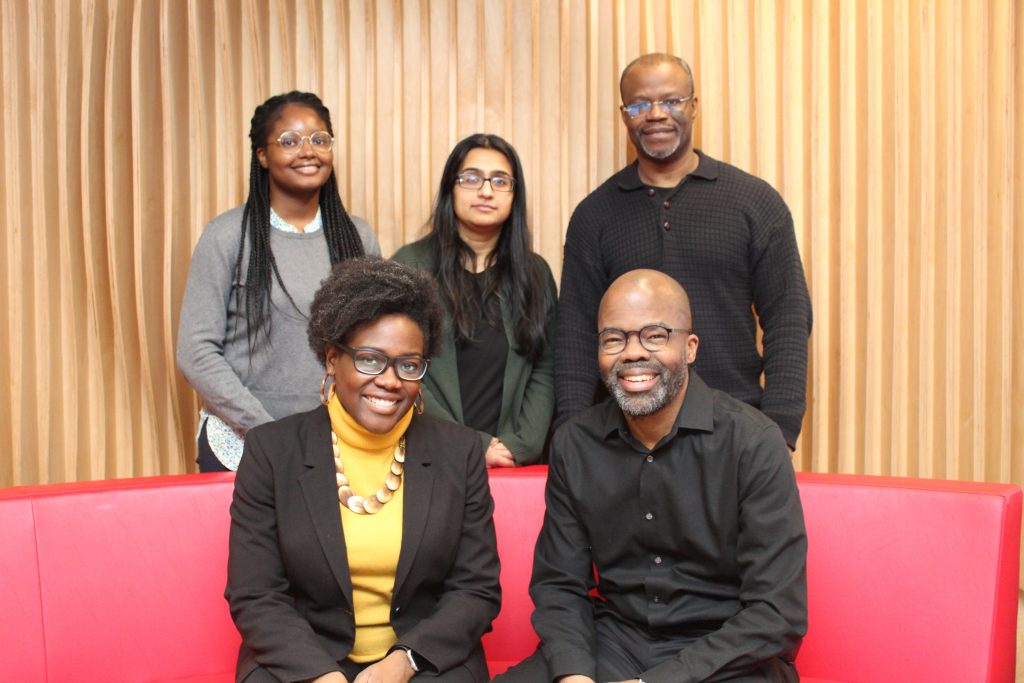Race Health and Happiness: U of T Professor Launches Podcast on Race and Wellbeing
February 25/2020
by Françoise Makanda, Communications Officer at DLSPH
A new podcast that aims to help racialized people thrive and stay well hits the airways today with its host U of T Professor Onye Nnorom.
“It’s not a podcast where we start explaining racism and if there is any in Canada. The assumption is that the listener understands that. This podcast is like course 201. Now, we think about staying well, thriving and finding joy,” says Nnorom who is a physician and Assistant Professor at the Dalla Lana School of Public Health and Faculty of Medicine’s Department of Family and Community Medicine.
“Center stage is the Black, Indigenous People of Color experience. It’s an opportunity to understand how groups have thrived and survived systemic racism. At its core, it’s how we overcome and enjoy despite life challenges.”

Photo credit: Françoise Makanda.
Prof. Onye Nnorom interviews Director X for her new podcast “Race, Health & Happiness”
Upcoming episodes will feature guests like Life Coach Ritu Bhasin, Former MP Celina Caesar-Chavannes and renowned film and music director Director X.
Nnorom got the idea from talking with students. She has always been vocal about the impact of racism on health, but racialized students wanted more.
“‘We understand what you say about racism and how it impacts people’s stress levels and how it’s incorporated into our institutions unintentionally. So how do we stay well from issues like microaggression, and understanding the lack of opportunities we may face?’ I didn’t have the answer to that – yes, there is some research, but I think community wisdom is a critical part of that answer.”
Nnorom enlisted the help of other DLSPH alumni, staff and students like Dr. Karl Kabasele, Obadiah George and Semipe Oni and Bhavna Samtani to produce the podcast. In one of the first two available episodes, she explores the duality first-generation Canadians face coming from a culture that emphasizes community while entering a society that prefers individuality.
“How do you stay true to yourself and your own value which might not always be the same as the dominant culture or the Canadian culture and the second is how you find the middle ground where you don’t have to be performing or pretending to be something that you are not but still be able to do well in this society and stay well,” she says.
She sees commonalities in the ways her guests stay well. Guests—all of whom come from various backgrounds and industries—stress the importance of connection and community among all backgrounds.
“Find a community with people who are like you and those who are not like you to connect with. That’s the beauty of Canada. Even though there is a lot of isolation especially in the way our Western culture is structured, lots of different cultures have a tradition of that kind of connectedness.”

Photo credit: Françoise Makanda.
Producers of the Race, Health and Happiness Podcast.
Bottom (left to right): Onye Nnorom and Karl Kabasele
Top (left to right): Semipe Oni, Bhavna Samtani and Obadiah George.
Nnorom looked at various outlets and settled on a podcast. Her hope is to reach these students and their counterparts through the medium which she believes is untraditional and will allow her to dive into topics mainstream media may not entertain.
Although the podcast won’t explain racism, she hopes it will help all listeners understand the issues racialized people face.
“Perhaps it will help people to understand that extra layer of challenges experienced by racialized people, so I hope that it creates some sort of understanding, or inspiration to become an ally.”